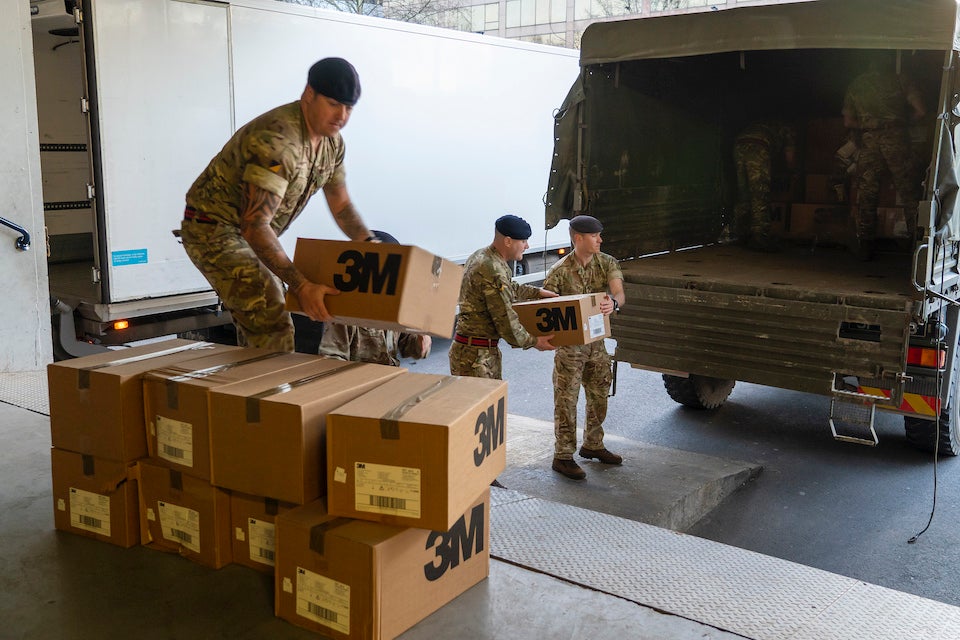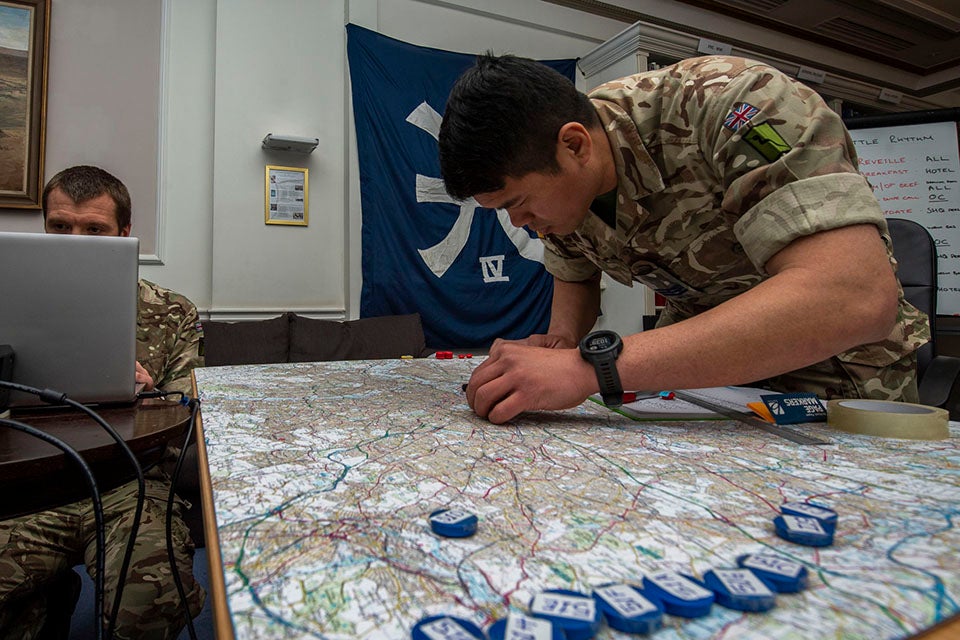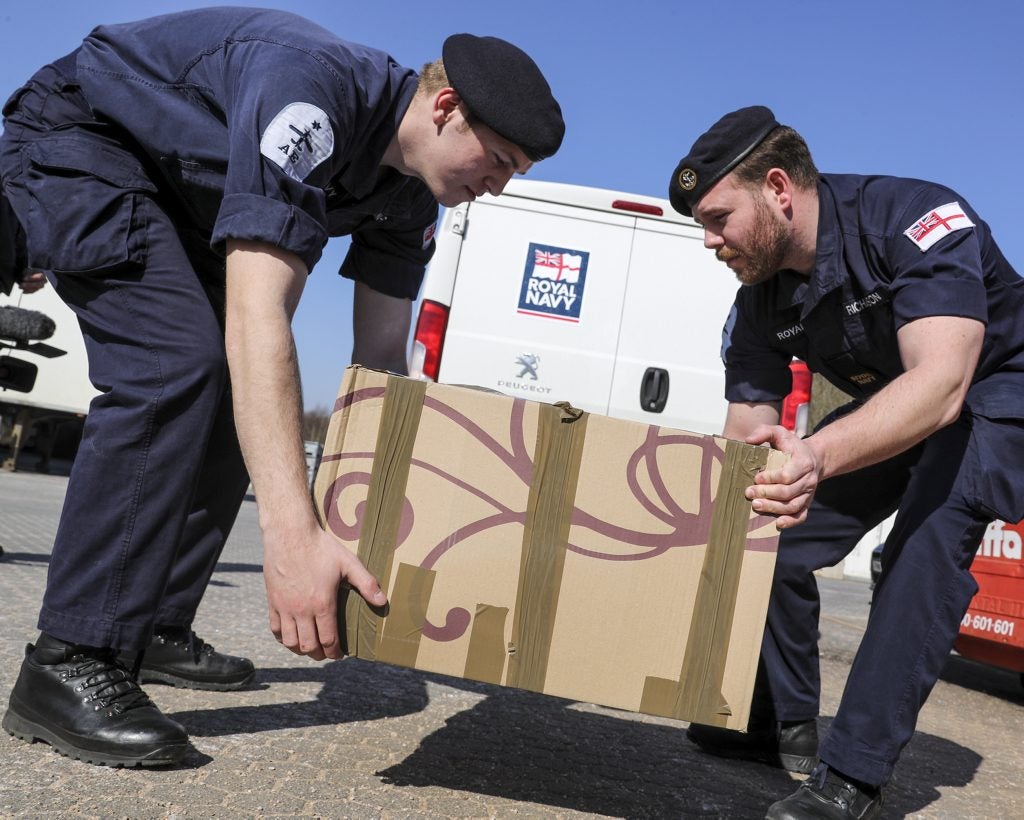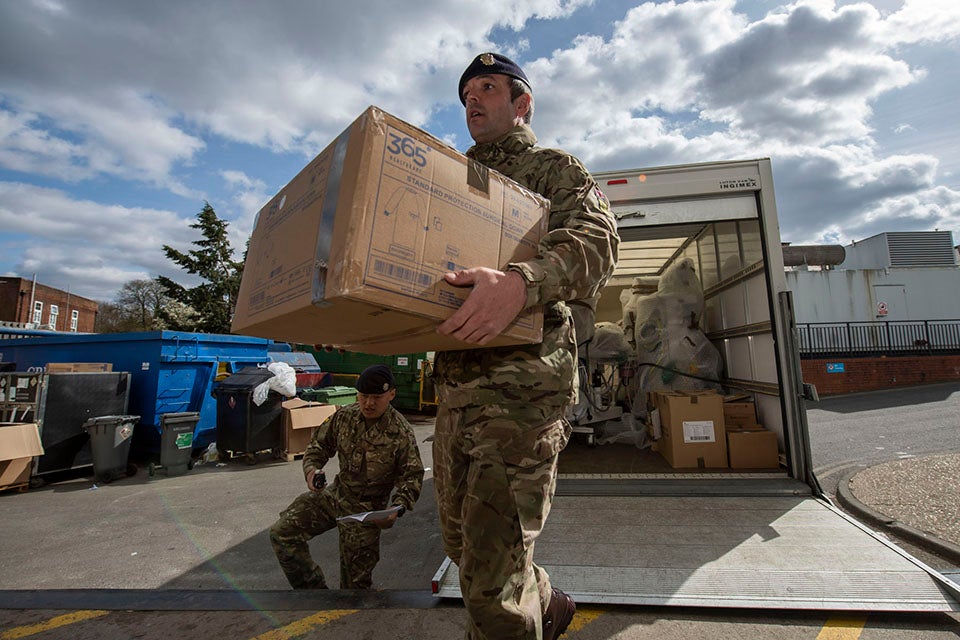Defence Provides More Than Just Manpower in the COVID-19 Stuggle
With the rise of COVID-19, it wasn’t long before there were calls for the military to get involved in supporting the health services. The National Health Service, in the United Kingdom, was no exception to this and the photograph of two military trucks delivering personal protective equipment (PPE) to an NHS hospital in London was an early example of the morale effect that military involvement can have.

Whilst the military generally are seen by the wider public to provide manpower, it’s also their expertise that is added value. This has been seen in the setting up of the emergency Nightingale Hospitals across the country. The expertise in planning and design for what is essentially a field hospital in existing buildings – as has been the Army’s method for many years – provides quick solutions. It’s possibly also the hierarchy that enables decisions to be made swiftly, effectively and with the requisite experience and training behind them.
One area that has been observed through social media is the role of the military, and defence more widely, is lessons to be learnt from how the NHS manage their logistics and, more specifically their inventory, both during and after this present crisis. The issue seems to be that the NHS Trusts, operating relatively independently from one another and central control, sets their own requirements and issues their own demands. This is irrespective of actual need as there are limited metrics to identify what each organisation needs either in relation to their staffing or the number of cases, and subsequent deaths, that they may be experiencing.
Unsubstantiated information exists that there has been over-use of PPE in some areas, and for some specific tasks, leading to shortages in others. As this has been a novel virus, it’s not been possible to determine contagiousness from previous experience so some of this is understandable but the risk-aversion may have caused some of these problems. There is the knock-on problem of managing new items into a system that may have various sources and even new designs that aren’t recorded on an inventory management system. This is an area that they can learn from the military’s planning and estimates systems that have been honed over the years of managing short-term demands through long-term planning.

When this crisis does eventually cease (and let’s all hope it soon will) there will be a residual tail of production items that the Government has committed to purchase but not used and these will need to be managed either for future storage and use or for disposal through safe means, and not before any risk of a further outbreak has gone away.
Consider the problem of post-conflict management of ammunition stockpiles, urgent operational requirements, expiry dates and the wider surplus equipment that may exist. The health services need to identify, possibly using their military support, what they’re likely to need and how they’re going to account for it, store it and make sure it can quickly be sent to places that need it in the future.

For best management in the current circumstances, they need to identify and use the metrics that show how much PPE is needed per case and how this changes through the progress of the disease. They need to utilise the logistics planners that can rapidly move stores between different locations.
Some of the statements and speeches made about PPE given by the Secretary of State for Health in the last few weeks may have been inflammatory and seem to ‘blame’ health workers for mismanaging PPE, yet the underlying principles he was trying to get across are exactly the lessons that can be learnt from defence. Inventory management can be complex and NHS Logistics are hopefully maximising the manpower and the expertise from the military colleagues they’re now working more closely with.

